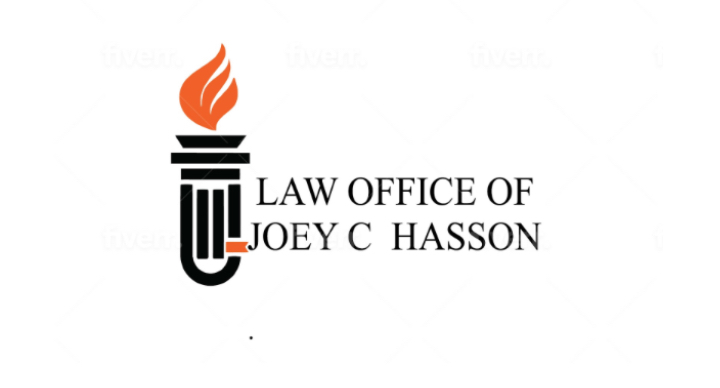🔒 How GDPR and CCPA Impact Your E-Commerce Marketplace – A Legal Guide to Compliance
admin

For e-commerce marketplaces, data privacy compliance is even more complex than for traditional online stores. Marketplaces process data from both buyers and sellers, making them responsible for protecting personal information at multiple levels. Regulations like the General Data Protection Regulation (GDPR) and the California Consumer Privacy Act (CCPA) impose strict requirements on how marketplaces collect, store, and manage user data.
If your platform facilitates transactions for EU or California residents, compliance isn’t optional—it’s a legal necessity. Non-compliance can lead to hefty fines, lawsuits, and loss of platform credibility. Here’s what your marketplace business needs to know to stay compliant.
🌍 1️⃣ What is GDPR? – Protecting EU Buyers and Sellers
GDPR applies to any online marketplace that collects or processes personal data from European Union (EU) residents, regardless of where the business is based. It establishes strict consumer rights and places heavy legal obligations on businesses handling personal data.
Key GDPR Requirements for Marketplaces:
- Explicit User Consent – Marketplaces must obtain clear opt-in consent from users before collecting or storing personal data. No pre-checked boxes allowed.
- Right to Access & Deletion – Buyers and sellers must be able to request their data, correct inaccuracies, or have their personal information erased (“right to be forgotten”).
- Data Processing Transparency – Marketplaces must disclose what data is collected, how it is used, and whether it is shared with third parties.
📝 Legal Insight: If your marketplace uses third-party payment processors, advertising platforms, or analytics tools, you must ensure these services are also GDPR-compliant. Failing to properly manage third-party data sharing could result in multi-million euro fines.
🇺🇸 2️⃣ What is CCPA? – Protecting California Marketplace Users
The CCPA applies to any e-commerce marketplace that collects or processes personal data from California residents, even if the business is headquartered elsewhere. The law grants users greater control over their personal information and imposes strict transparency requirements.
Key CCPA Requirements for Marketplaces:
- Right to Know – Users (both buyers and sellers) can request a report of what personal data is being collected and why.
- Right to Opt-Out – If the marketplace sells or shares user data, it must provide a clear “Do Not Sell My Personal Information” link.
- Right to Delete – Users can request account and data deletion, and marketplaces must comply unless legally required to retain the data (e.g., for fraud prevention).
📝 Legal Insight: If your marketplace uses retargeting ads, shares user data with third-party vendors, or collects behavioral analytics, it must offer users an easy opt-out mechanism. Non-compliance fines reach $7,500 per violation, and California regulators have increased enforcement actions in recent years.
⚖️ 3️⃣ Key Differences Between GDPR and CCPA for Marketplaces
Marketplaces often operate across multiple jurisdictions, making it essential to understand the differences between GDPR and CCPA compliance.
| Aspect | GDPR (EU) | CCPA (California) |
|---|---|---|
| Who it applies to | Any marketplace collecting EU user data | Any marketplace collecting CA user data |
| Consent required? | Yes, marketplaces must obtain opt-in consent before collecting data. | No, data collection is allowed but must provide opt-out options. |
| Right to deletion? | Yes, users can request data erasure at any time. | Yes, but businesses have more exemptions (e.g., fraud prevention). |
| Third-party sharing? | Marketplaces must ensure all vendors and partners comply with GDPR. | Marketplaces must disclose all third-party data sales or sharing. |
| Fines for non-compliance | Up to €20M or 4% of annual revenue | Up to $7,500 per violation |
📝 Legal Insight: Many large global marketplaces align with GDPR’s stricter standards to ensure they meet both EU and U.S. compliance obligations. If you operate internationally, GDPR compliance provides a more comprehensive legal framework.
🛡️ 4️⃣ Marketplace Compliance: How to Protect Your Business
To stay compliant with GDPR and CCPA, e-commerce marketplaces must implement strong data privacy practices.
Steps to Ensure Marketplace Compliance:
- Conduct a Data Privacy Audit – Identify what data you collect from buyers, sellers, and third-party integrations.
- Update Your Privacy Policy – Clearly explain data collection, storage, and user rights in an easily accessible format.
- Implement User Consent Tools – GDPR requires opt-in consent, while CCPA requires an opt-out mechanism. Your marketplace must provide both.
- Secure User Data – Encrypt all personal data and payment details, and limit access to only authorized personnel.
- Monitor Third-Party Vendors – Ensure that payment processors, shipping partners, and ad platforms also meet compliance standards.
📝 Legal Insight: Marketplaces often share user data with sellers, advertisers, and logistics partners. Failing to properly disclose these data-sharing practices can lead to significant legal penalties.
❌ 5️⃣ Risks of Non-Compliance for Marketplaces
Marketplaces that fail to comply with GDPR or CCPA face serious financial and reputational risks.
What Happens If You Don’t Comply?
🚨 Major Fines – GDPR violations can cost €20M, and CCPA violations $7,500 per incident.
🚨 Class-Action Lawsuits – Both laws allow users to take legal action if their rights are violated.
🚨 Marketplace Trust Issues – Data breaches or privacy violations can cause users to leave your platform, reducing sales and transactions.
📝 Legal Insight: Regulators actively investigate non-compliant marketplaces, especially those with cross-border data sharing. A proactive compliance strategy can help avoid legal scrutiny and fines.
🔐 Final Thoughts: Data Privacy as a Competitive Edge
GDPR and CCPA compliance should not be seen as a burden—for marketplaces, it’s a trust-building tool. Consumers are more likely to use platforms that prioritize privacy, security, and transparency.
By implementing strong data protection measures, your marketplace can:
- Increase user trust and boost platform credibility
- Reduce legal risks and avoid costly penalties
- Strengthen your marketplace’s reputation in a data-conscious era
📞 Need legal guidance on marketplace compliance? Let’s ensure your platform stays ahead of regulations while maintaining a competitive edge.
Lorem ipsum dolor sit amet, consectetuer adipiscing elit. Aenean commodo ligula eget dolor. Aenean massa. Cum sociis natoque penatibus et magnis dis parturient montes, nascetur ridiculus mus. Donec quam felis, ultricies nec, pellentesque eu, pretium quis, sem. Nulla consequat massa quis enim. Donec pede justo, fringilla vel, aliquet nec, vulputate eget, arcu. In enim justo, rhoncus ut, imperdiet a, venenatis vitae, justo. Nullam dictum felis eu pede mollis pretium. Integer tincidunt. Cras dapibus. Vivamus elementum semper nisi.
Aenean vulputate eleifend tellus. Aenean leo ligula, porttitor eu, consequat vitae, eleifend ac, enim. Aliquam lorem ante, dapibus in, viverra quis, feugiat a, tellus. Phasellus viverra nulla ut metus varius laoreet. Quisque rutrum. Aenean imperdiet. Etiam ultricies nisi vel augue. Curabitur ullamcorper ultricies nisi. Nam eget dui. Etiam rhoncus. Maecenas tempus, tellus eget condimentum rhoncus, sem quam semper libero, sit amet adipiscing sem neque sed ipsum.
Stay Informed with Our Latest Updates!
Sign up for our newsletter to receive the latest legal insights, tips, and updates directly to your inbox. Stay up-to-date with industry trends, legal advice, and exclusive offers from our team at Law Office of Joey C. Hasson.

